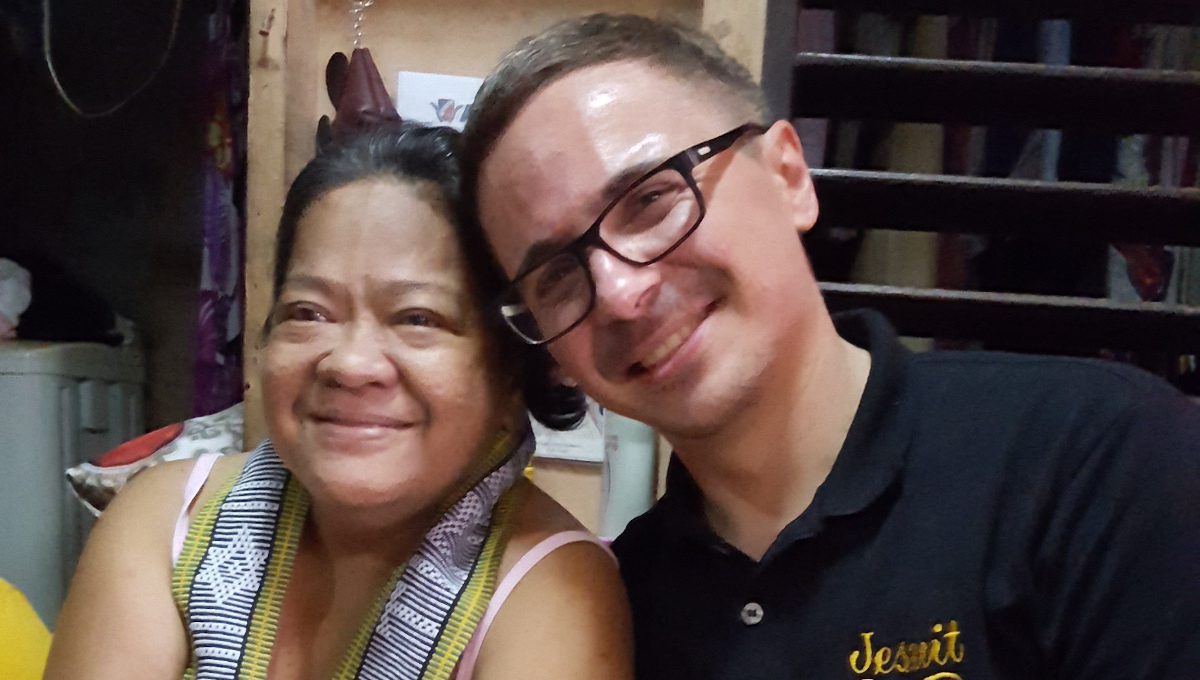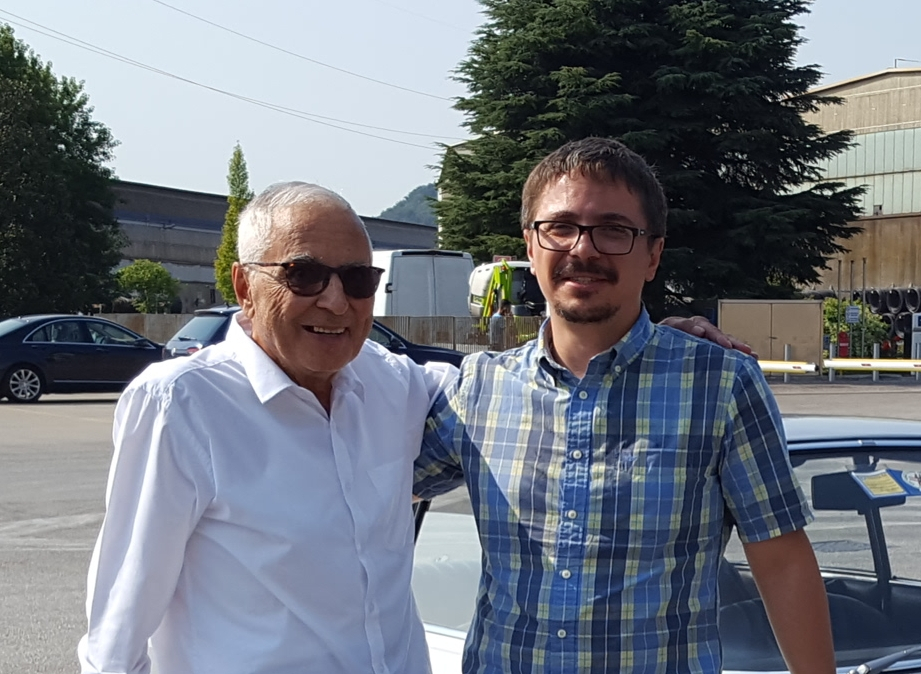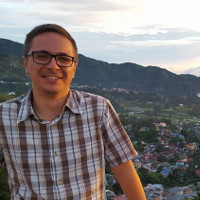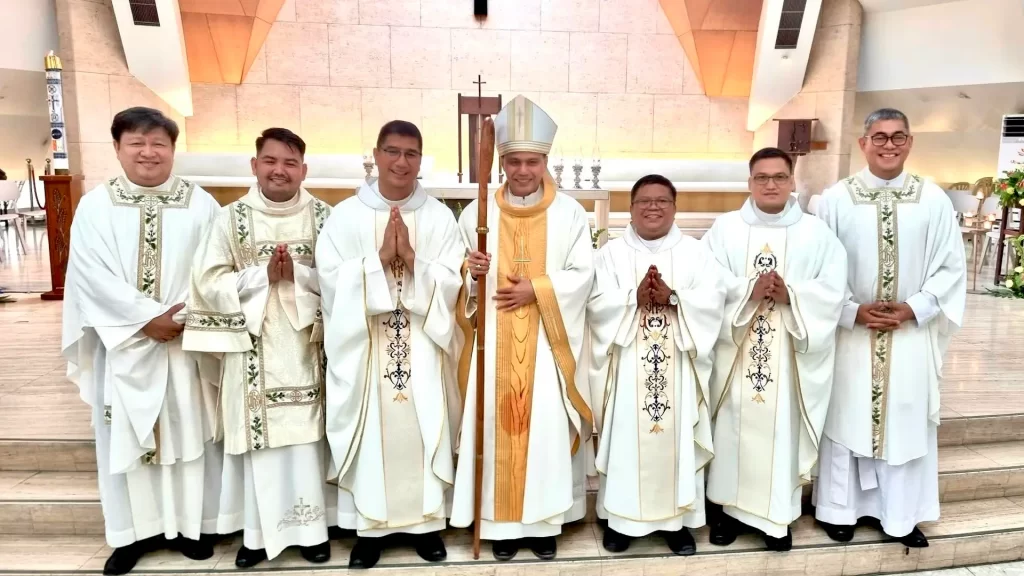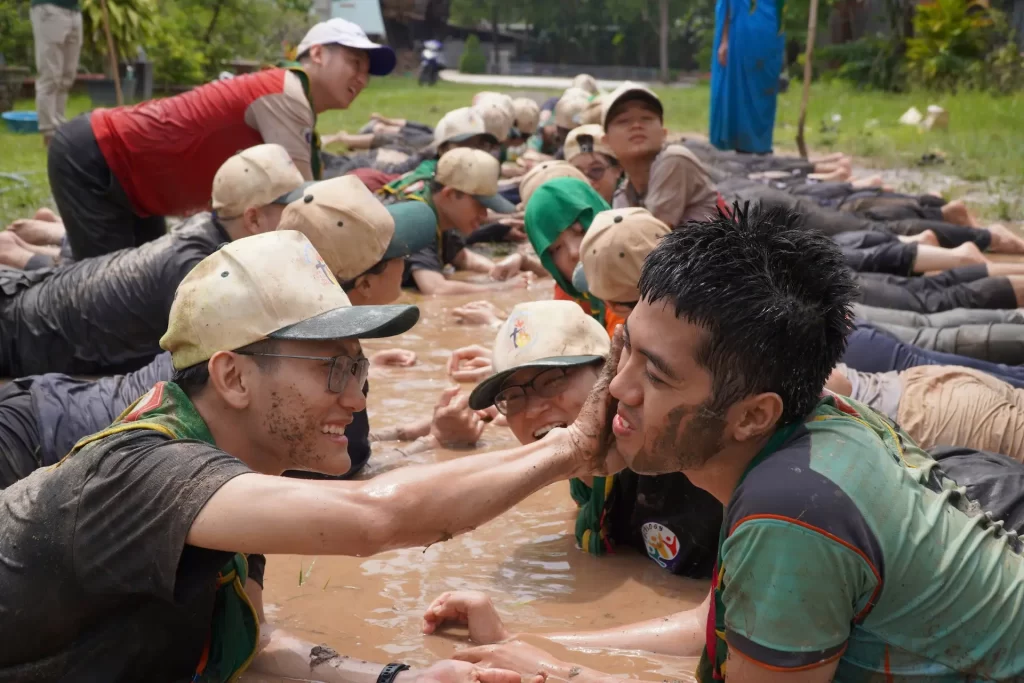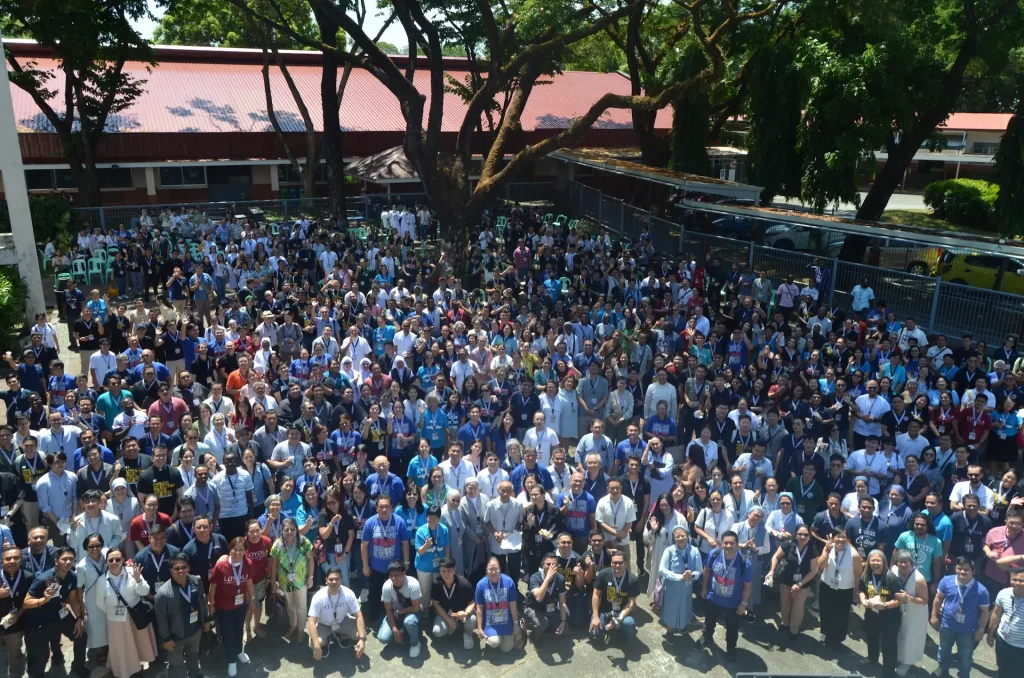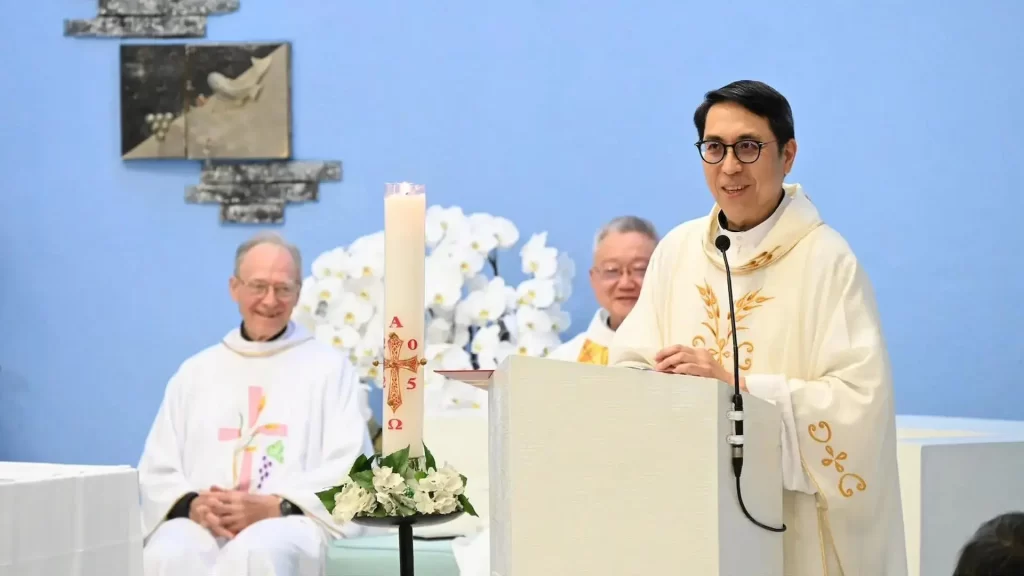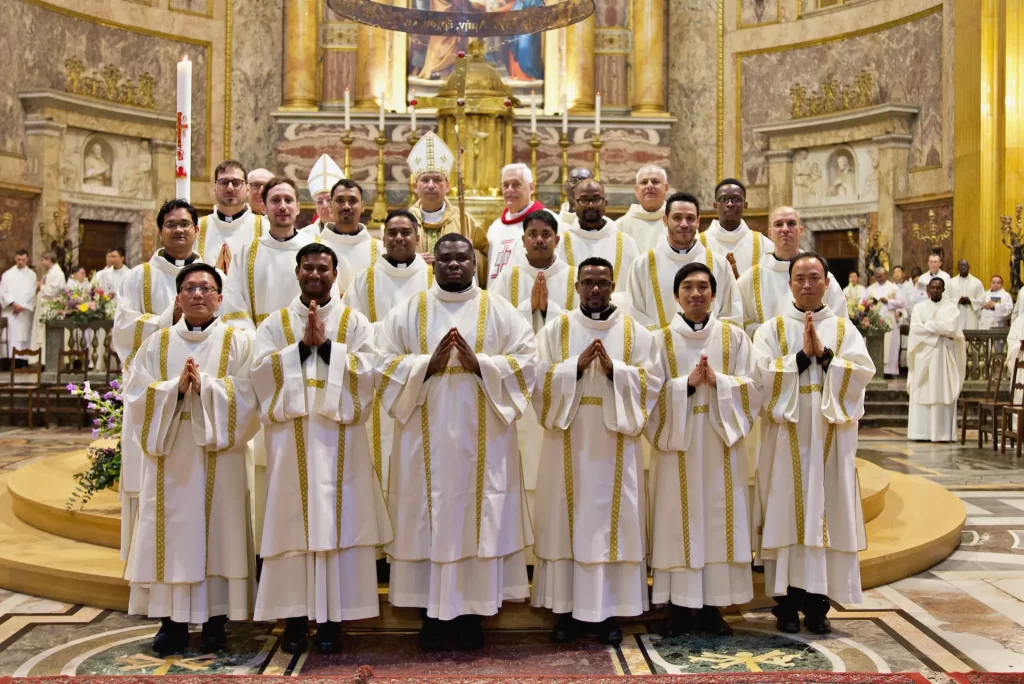Ate Mirna’s smile is instant, bright and always a sign of happiness. “Ate” in Tagalog means “older sister”, a respectful and affectionate nickname given to women. She immediately smiles when we enter her poor hut in the suburb of Liwanag (“Light” in Tagalog), not too far from Manila, and she smiles when we go out. It is thought that a smile in Asia is something cultural and anthropological rather than spontaneous. Though, this is not the case with Ate Mirna. She smiles from the heart, even in times of pain and tears. We are in Manila as part of our training as Jesuits. Every Sunday after Mass, we visit her and other families in the neighbourhood to give Holy Communion. Ate Mirna cannot move from her hut. She lives there with her husband and her 20-year-old son. Ate Mirna is diabetic, which is a condition that in Italy can easily be treated with insulin injections. Yet, in the Philippines, like many others, this condition has devastated her body, forcing her to have twice weekly dialysis sessions, to lose one leg first, and then the other. Last Maundy Thursday, we managed to do the washing of the feet with her, but this year, we could only ask her to give us a blessing. Her husband and son, who both have to study and work, go out of their way to help her in acts of infinite generosity, patience and sweetness. But even for them, patience and their pockets have a limit. Despite a tiny bit of government help, this humble family invests its already scarce earnings in treatment and medicine.
But Ate Mirna smiles. And the son and the father smile, even with tears in their eyes. For three weeks we went to the door of her hut and found it barred. Every week, the neighbours told us that she was in the hospital. At last, on the fourth attempt, we found her. She welcomed us once again with a smile, but this time without the remaining leg. I still remember the reaction I felt inside of me at that precise moment. Within me, every part of my being rebelled, saying, “Why, God? Why so much suffering inflicted on people who already live in such misery?” The Gospel of that Sunday read: “Ask and it will be given to you.” Later, I had to share something about the Gospel of the day, and whilst trying to hide my anger against God, because, in my opinion, he had been deaf to many prayers, I tried to stammer something about the power of prayer, and how God listens to us and acts in ways unimaginable for us. At that moment, I didn’t believe what I was saying. But what struck me was the sharing that Ate Mirna gave us after the ritual. She told us, with pain and tears, all about her journey of prayer in suffering, which led her from praying for her healing, to praying to die, to praying to fight for her son, to praying to simply accept God’s Will. It was with a hope that I rarely have met. She was able to find a way to be deeply grateful for all the people who were helping her, and to thank us too, that every Sunday we had knocked at her closed door, just as the neighbours had told her.
My dad, Roberto, passed away last February 14 (Valentine’s Day). Long sick, his condition worsened in the last few weeks before February. When he passed away, I was not there. I was in Manila, 10,000 kilometres away from his hospital bed. Perhaps I never felt the weight of religious life more than at that time, and all my prayers seemed helpless. Just one last video call on Skype a few days before, with a short, almost trivial conversation (we still hoped that he would recover), and, thank God, a more meaningful letter written the previous month, when something inside me clicked, and I felt the need to write down what I always wanted to say to Dad, and that, out of embarrassment or other reasons, I had never been able to communicate to him.
However, something unexpected happened on the day of the funeral and in the next few days. Even in the pain and confusion of the moment, it was as if my eyes had suddenly become more capable of peering into the softer light capable of shining through the darkness. Suddenly I realised that Dad did so much good when he was alive, and that perhaps I was not able to fully recognised it. This good was reflected in the pain and friendship of so many friends who stood by us through those few days. At that time, I also felt the possibility of reconciliation for the wounds that Dad and I had inflicted in the past. In addition, I strongly felt the closeness of my fellow Jesuits, because for the first time perhaps, my two families, my blood family and that chosen by my vocation, were truly united. Amidst grief, gratitude had unexpectedly emerged for the life of my Dad, for the strength and courage of a mother, for the unity rediscovered in our family, and for the many gifts received from the many friends who love us.
Rereading the experience a few months later, I firmly believe that all this would not have happened in the same way had I not learned from Ate Mirna’s smile, then and now, 10,000 kilometres away from home, what it means to suffer and offer one’s own suffering. Perhaps then the final act of poverty and humility is to give up one’s own pain, one’s own darkness, and to let someone else dwell in us and enlighten us.
Ate Mirna’s smile does not erase her pain, it only allows her to experience it differently and look at it with new eyes, sometimes full of tears, yet able to see that pain never has the last word. Had I not been “evangelised” by her, perhaps I would still continue to cry out against God’s silence during trials instead of learning, one step at a time, to listen to him and contemplate his mysterious consolations. [Project 22]

